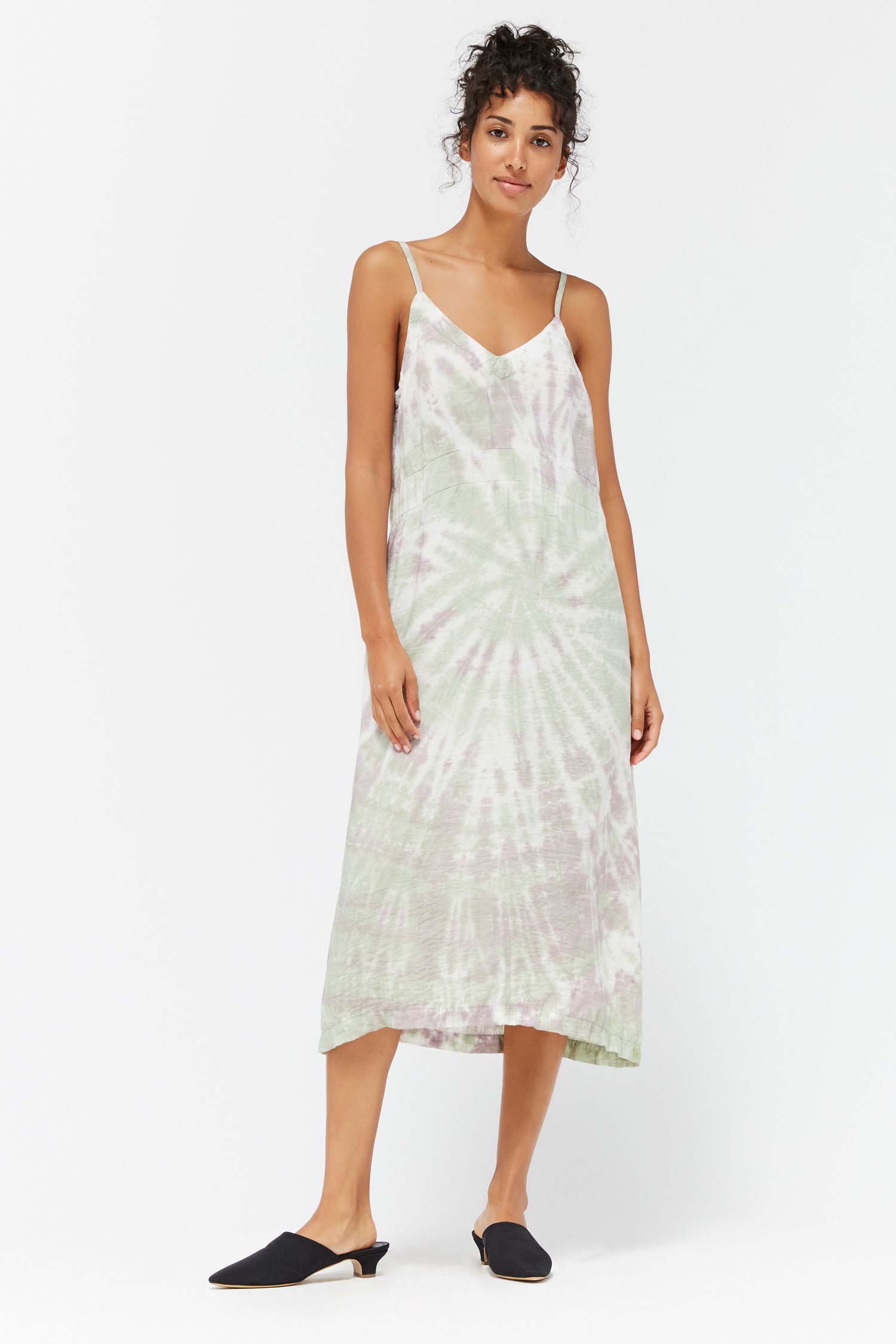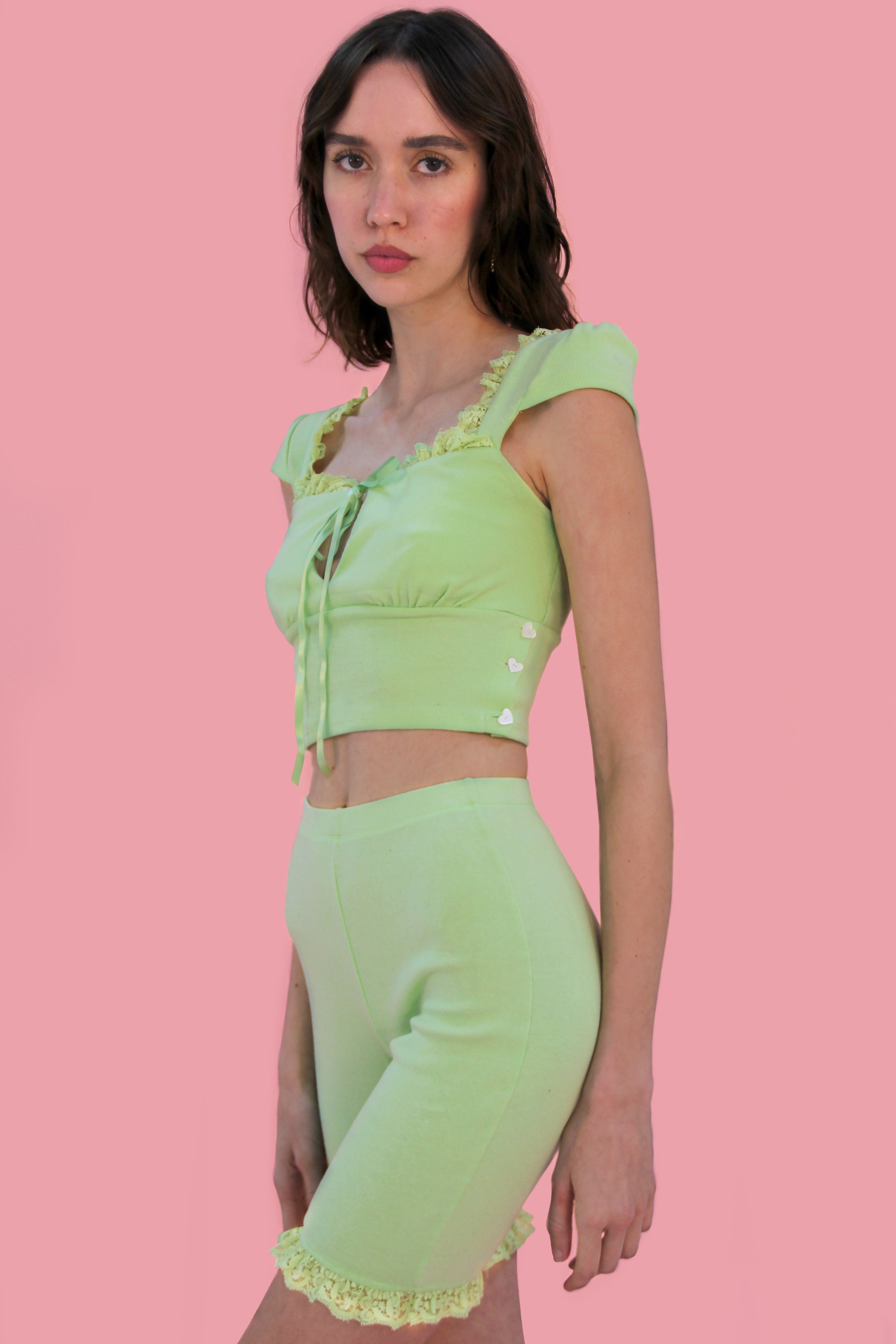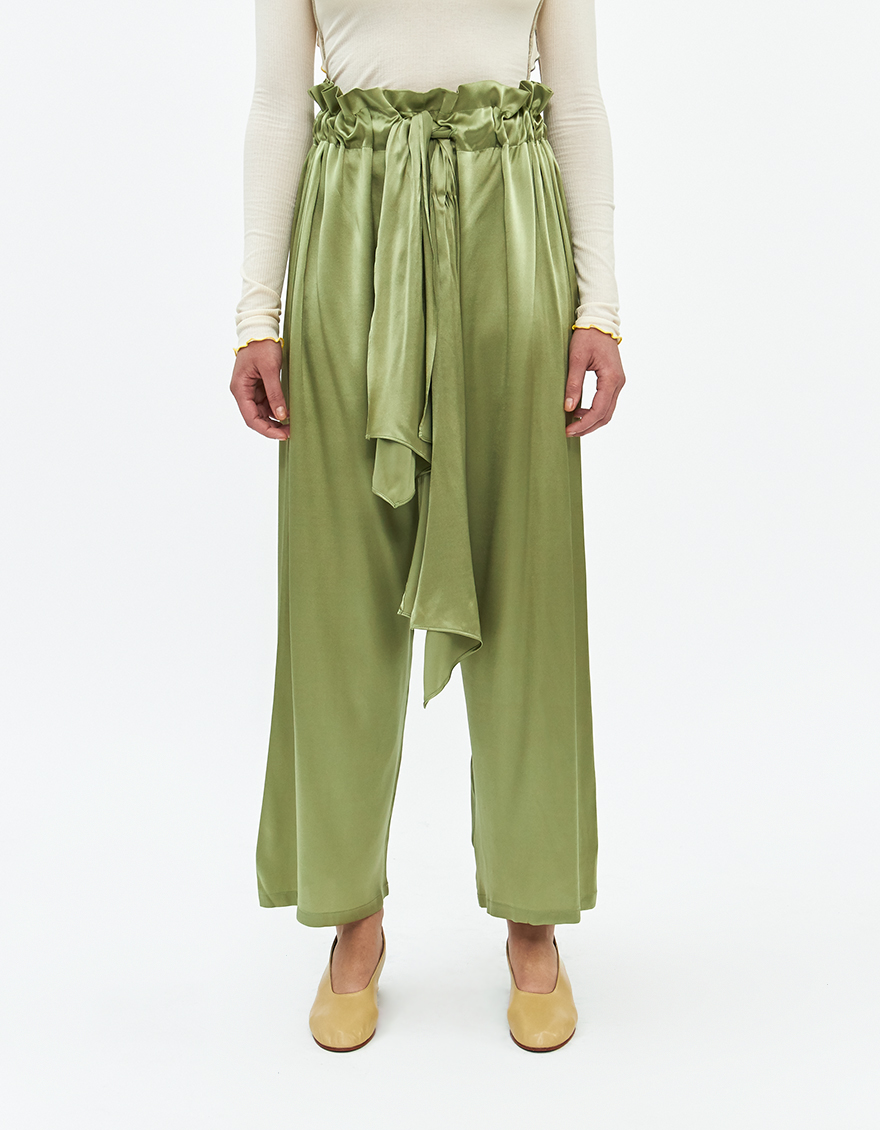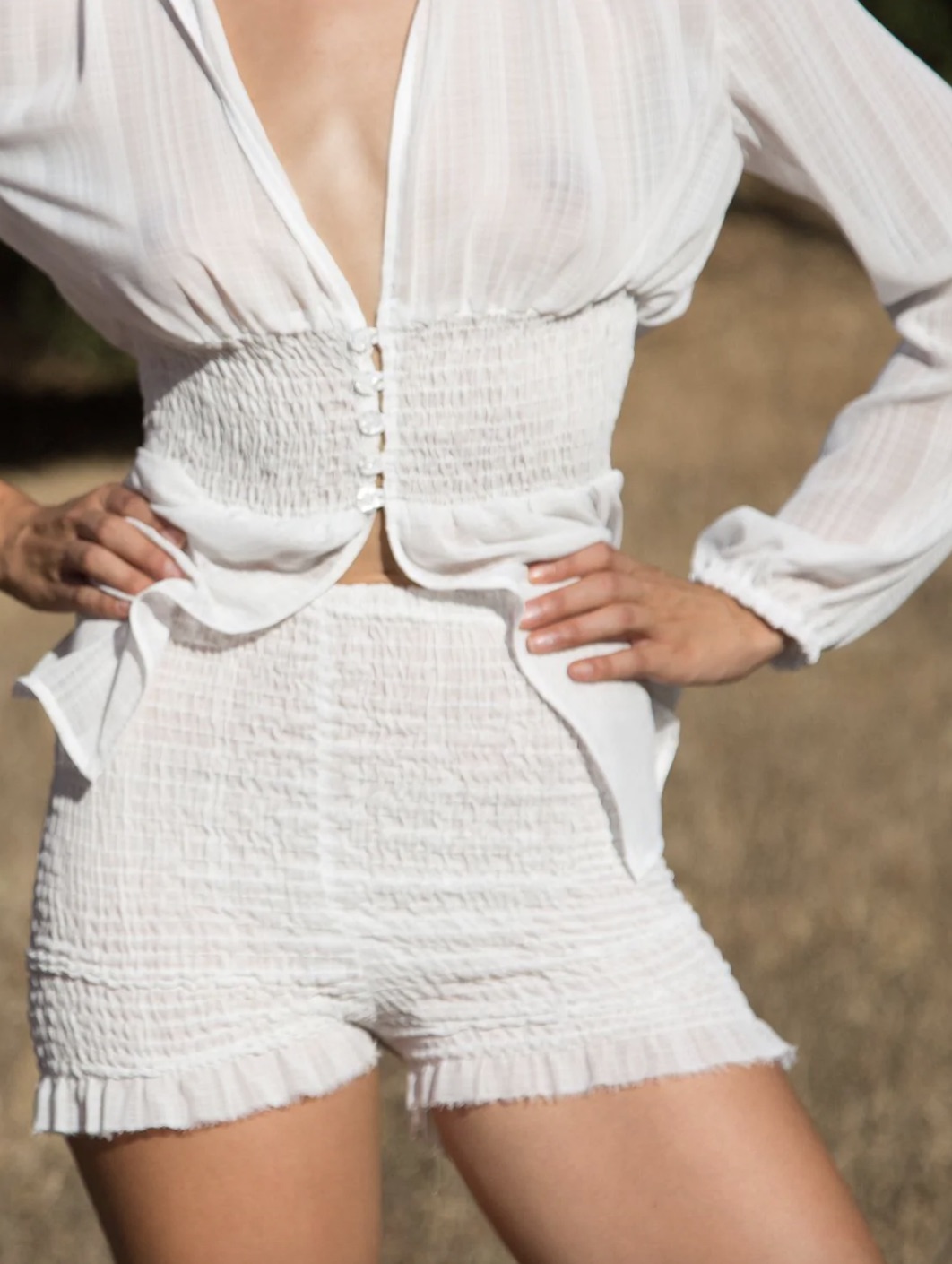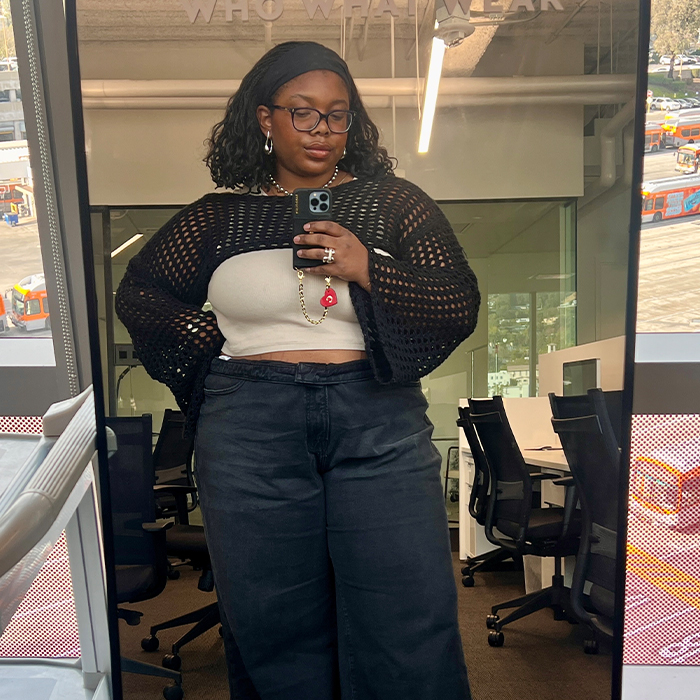8 Sustainable Brands That Make the Most Delicious Comfy Clothing
Happy Earth Day, fellow fashion friends. With public and personal health top of mind for the past several weeks, it’s been interesting to see a side narrative of stories emerging about the effects of this epidemic on our planet. There’s a silver lining to the mandatory slowdown many of us are experiencing now, wherein we are called to reflect on what we really need and the larger impact of our behavior. As a fashion editor, I naturally think of my consumer habits when it comes to clothing, and I know many of our readers are increasingly considering sustainability for their next purchase. With more time at home, naturally in very comfy clothes, the concept of sustainable loungewear feels especially appealing. So I leave you with some of my personal favorite companies that do comfy clothing especially well, all with Mother Earth in mind.
Lacausa
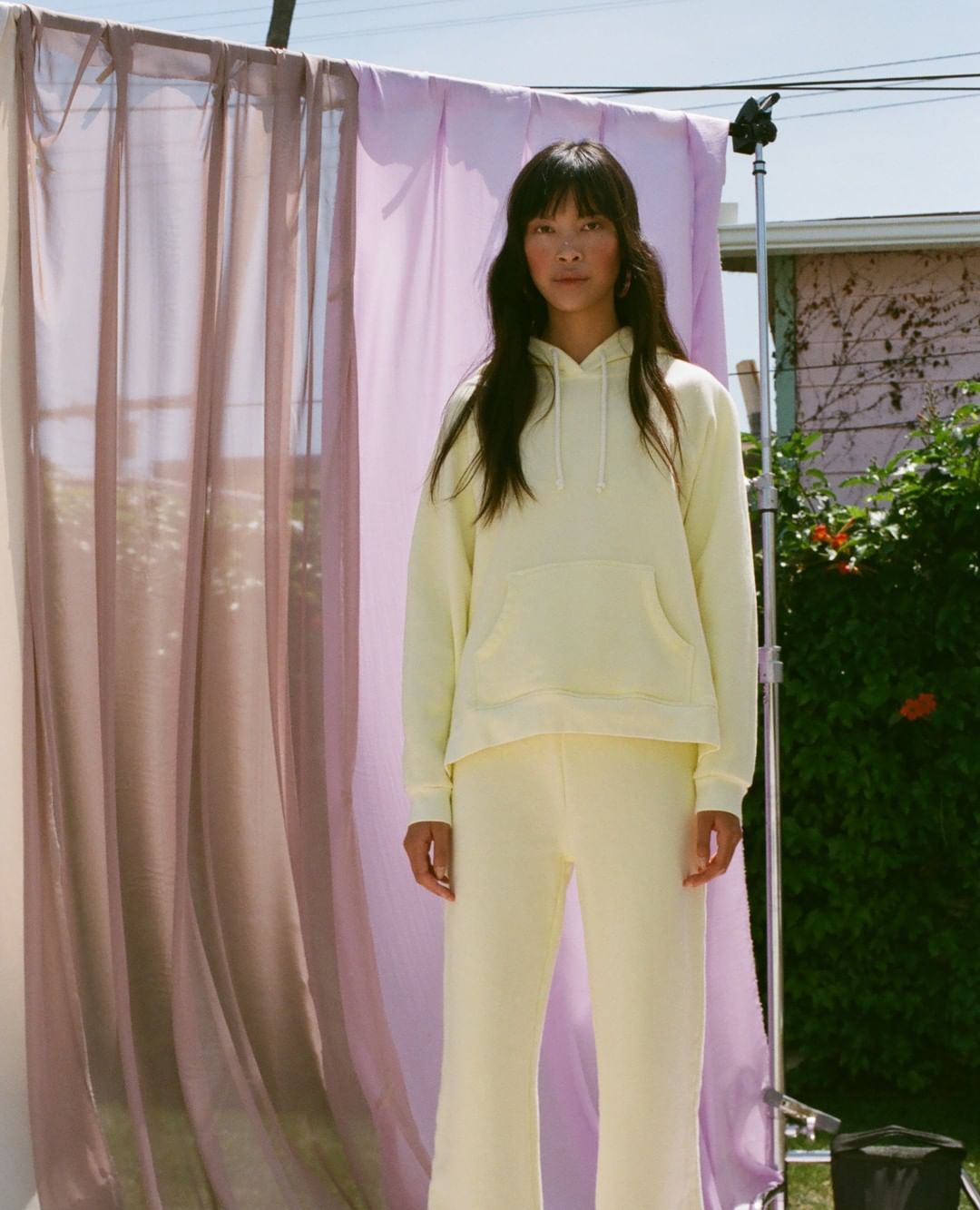
How is Lacausa Earth-conscious?
"We’ve always been committed to ethical, honest manufacturing. We aim to keep the core of our manufacturing here in the Los Angeles community. We ensure that we only produce our products in factories that provide fair, livable wages and healthy, humane working conditions for all team members. Each of our partners shares our mission of equality, transparency, and a more ethical future for fashion. In-house, our small team prioritizes a low-waste design process and is continuously working on new initiatives for the donation program, focusing on human and environmental rights. In the past year, we have made seasonal donations to the NRDC, Surfrider LA and Cool Earth." — Rebecca Grenell, founder and designer of Lacausa
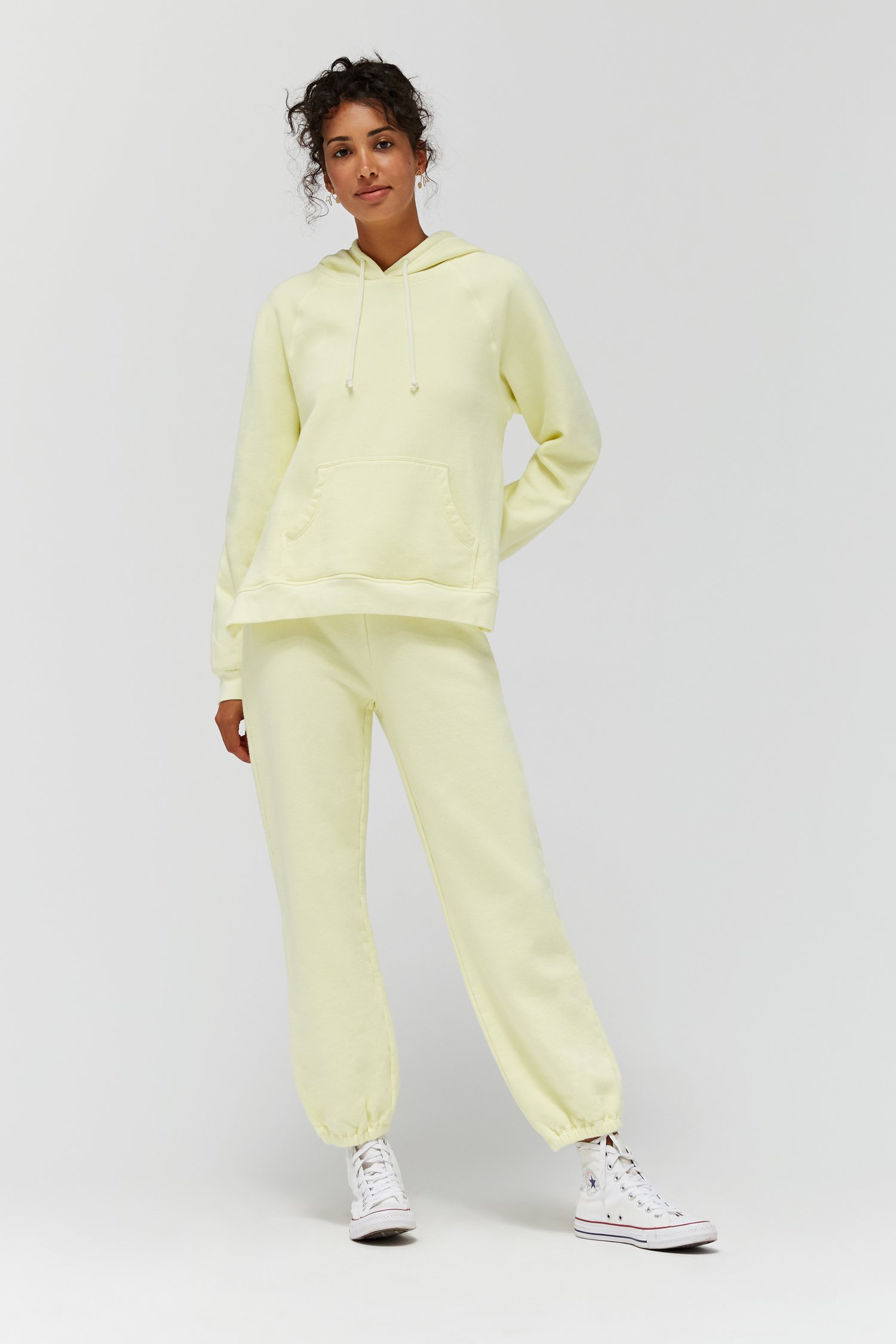
Shop the matching Ollie Sweatpants ($120).
What is one small tip for being Earth-friendlier in your everyday life?
"Even simple food waste releases methane into our atmosphere. Save all your scraps when cooking! You can turn most veggie ends into a yummy broth and most greens into pestos. Compost whatever you can't use. Even if you don't compost at home, you can take a paper bag full of waste to your local compost drop-off!" — Smith
Dôen

How is Dôen Earth-conscious?
"While we don't make a claim to be a 'sustainable brand' (we believe it's hard for any clothing brand to be fully sustainable), we have several initiatives in place that stem from a high regard for sustainability and a greater effort toward a more eco-conscious future.
"Regarding our manufacturers, we're intentional when selecting our partners and only work with factories that share our company values, including a commitment to ethical practices that positively impact employees, their surrounding communities, and the planet. We participate in production methods that eliminate waste, ordering only enough fabric to fulfill our orders. We primarily use natural fabrics and ensure that our collections are made of the most ethically sourced materials possible. We are transitioning certain styles to organic and recycled fabrics/yarns and are working with GOTS fabrics and WRAP-certified factories for certain styles. (Our new cotton Pomme sweater is organic yarn and Fair Trade Certified by Promperú, and our sweetpea printed tee/tank and shorts sets are made in a WRAP-certified facility.) One of our factories is solar-powered, and others are working toward this initiative as well. Our shoes are made from vegetable-tanned leather (no chrome tanning), and all of our denim styles are made locally in Los Angeles, which helps to reduce emissions related to transport." — Margaret Kleveland, CEO & co-founder of Dôen
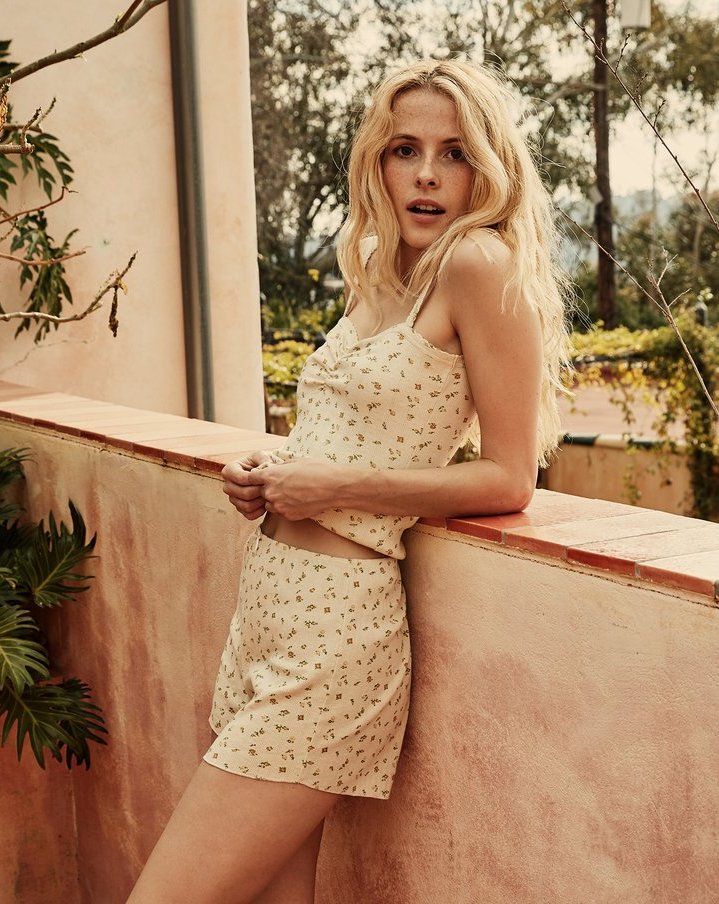
Shop the matching Stella Shorts ($68).
"Our packaging is 100% recyclable, and our eco-shippers contain a minimum of 90% post-consumer content. We believe the burden of recycling packaging should not be on the customer, so any product requiring a polybag for transit is removed prior to shipping and recycled by our team. We are in the process of developing a better solution for polybags and currently using biodegradable bags with our largest supplier. Our goal is for a full transition to a paper-based eco-alternative for all products this year.
"Equally important to us, we embrace a 'fewer, better things' mentality and strongly believe in building a wardrobe that is timeless and crafted to last. In 2019, we partnered with luxury consignment site The RealReal to promote and support a circular economy. By encouraging the resale of our items with The RealReal, we were able to extend the lifestyle of our garments, keeping apparel out of landfills. We are always looking to reimagine and reform how we think about fashion and are constantly seeking out new ways to collaborate with circular and closed-loop systems." — Kleveland
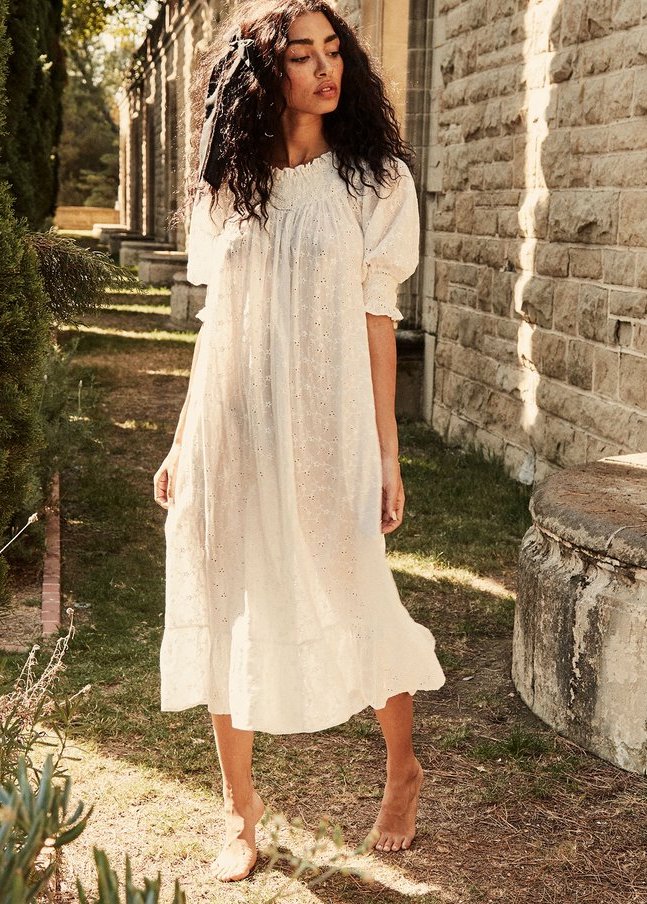
What is one small tip for being Earth-friendlier in your everyday life? "We've been working hard toward creating more sustainable practices at the office (pre-COVID-19!) and are so excited to continue when we are back. In November of last year, we created a Corporate Sustainability Committee (as well as a Diversity Committee and Wellness & Safety Committee) where we discuss ways to make our practices more sustainable within the office and in our supply chain. One example the committee implemented is using Refillery LA, a mobile soap and detergent filling station that does office calls. Their mission is to encourage people to re-use plastic and glass bottles, to use nontoxic, plant-based cleaning products. We bring in our own bottles from home and they refill with soap and detergent by the ounce! We also encourage the use of bringing lunch in reusable containers to cut down on disposable plates/utensils at the office. "Another fun tip we've picked up from our team and customers is to bring the muslin bags our clothes arrive in to the grocery store/farmers market (pre-/post-COVID) to bring home fruits and vegetables to eliminate plastic use!" — Kleveland
Araks
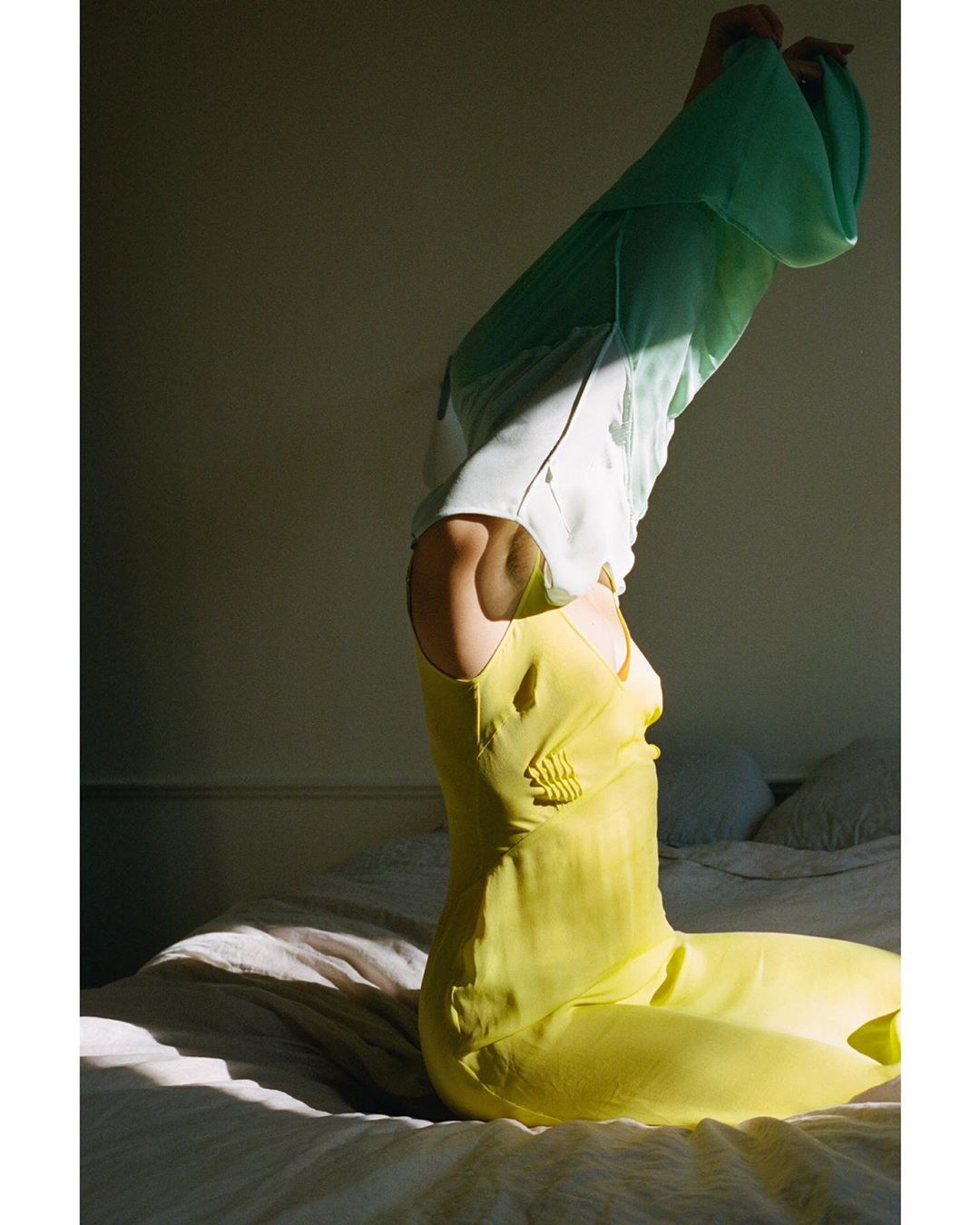
How is Araks Earth-conscious?
"One of the core values of Araks is being thoughtful about the resources we use. With every design and business decision we make, we strive to minimize the environmental impact. Two-thirds of the impact of clothing comes from the choices we make in design, so we choose fabrics and suppliers who aim to reduce water, air, and environmental emissions using solar power. We always choose organic or recycled materials where we can, always looking for better alternatives. We also continually evaluate our choices as new technologies and options become commercially available." — Araks Yeramyan, founder and creative director of Araks
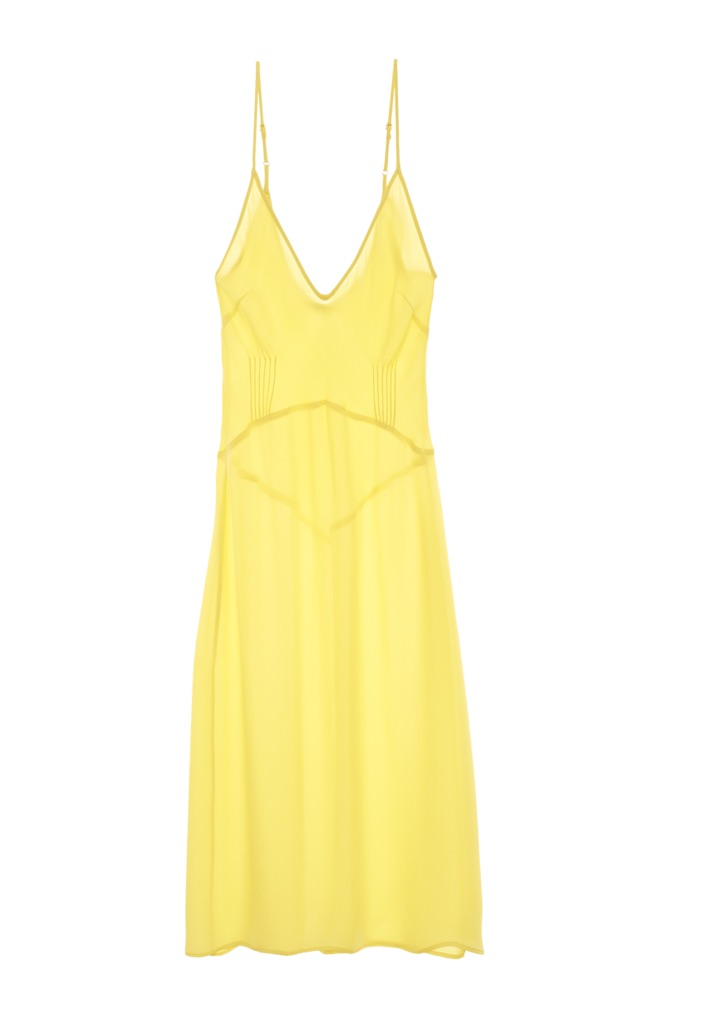
"This also filters down to the everyday operations of our studio. Everything from boxes to bags to paper (no Post-its) is used and reused as much as possible. We support and monitor the fair treatment of all of our workers. Throughout the year, we donate a portion of sales to support initiatives across the globe that we believe in, including Planned Parenthood and Sierra Club. Sustainability is a journey Araks has been on since its inception, and it is one that will continue to grow as solutions evolve. We think of sustainability in a holistic way— from our employees and vendors to the designs we create, the materials we use, and the spaces we work in, everything." — Yeramyan
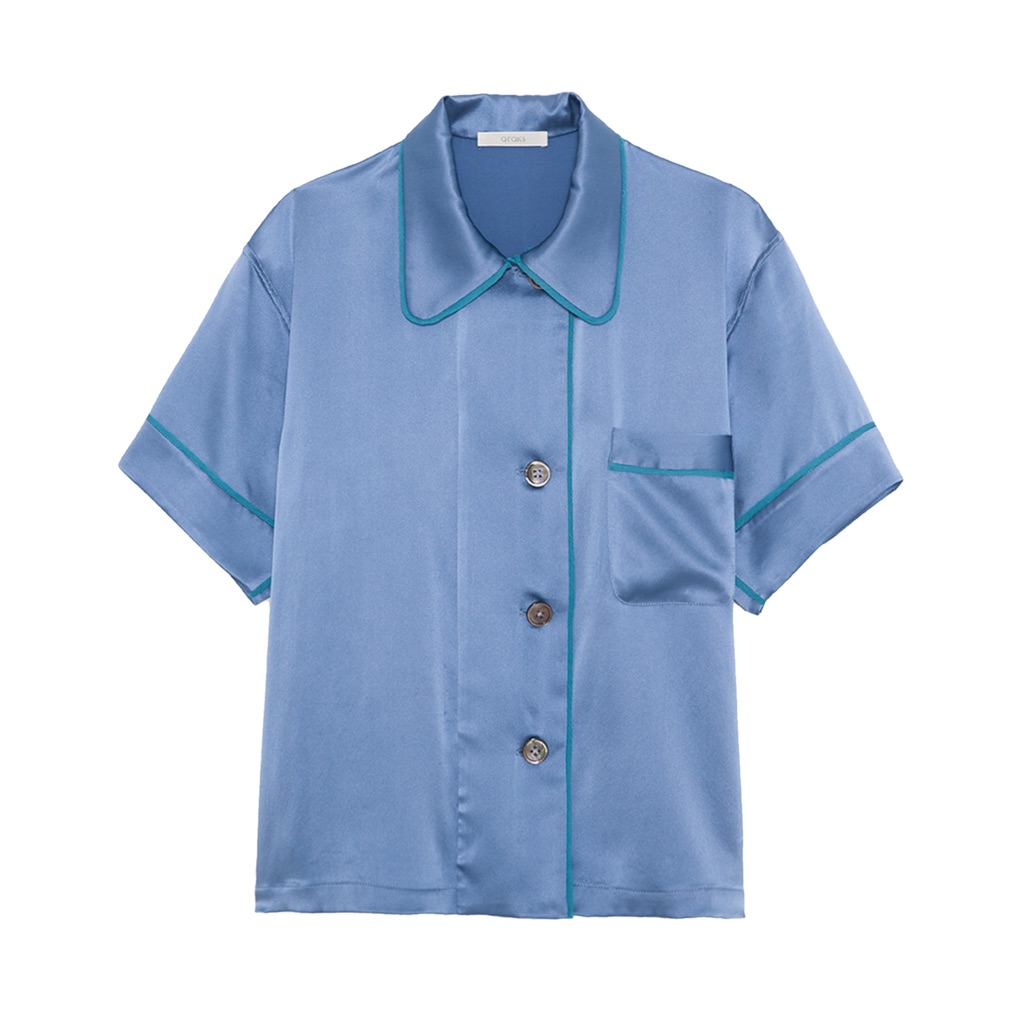
What is one small tip for being Earth-friendlier in your everyday life?
"There are thousands of tips out there, so my tip is how to think about all those tips without being overwhelmed. I suggest trying to incorporate one new way of being sustainable per month. See if it works for you, and then build on it the following month. The idea is that each month you’ll be stronger and more sustainable than the month prior." — Yeramyan
Evewear
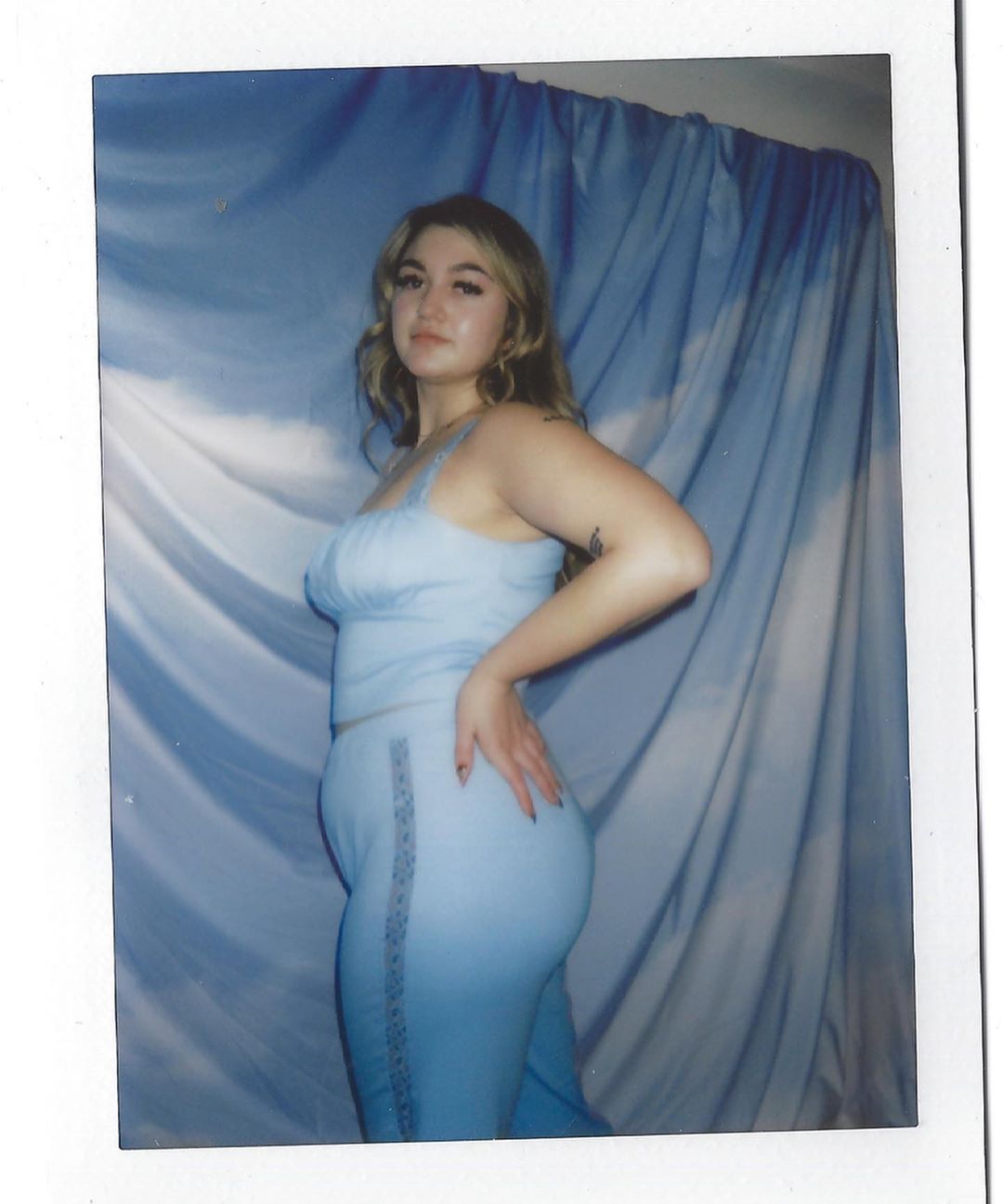
How is Evewear Earth-conscious?
"We are Earth-conscious in a few ways. First, we use all deadstock fabric and trims. It takes thousands of toxic chemicals to take raw materials and turn them into textiles/fabric. Deadstock fabric is fabric that already existed, whether it was extra, unneeded yardage or never sold, and remains sitting unused. Without intervention, this deadstock fabric would have ended up in landfills. (In 2017, the U.S. sent 11 million tons of textiles to landfills.) We also specifically only use cotton deadstock fabrication. Using natural fabrics such as cotton help to reduce the microplastics that go into the ocean when garments made out of synthetic materials are washed. All of our garments are at least 95% cotton, and as we continue to expand our line, we plan on using all-natural fabrics to ensure that we are not contributing to any pollution. Lastly, we are a local company. Our entire operation from development in our office to sourcing and production in Downtown Los Angeles is within a five-mile radius. We work locally to support our local artisan economy and cut down carbon emissions that would otherwise be used if we worked overseas." — Talia Schlussel, founder/designer of Evewear
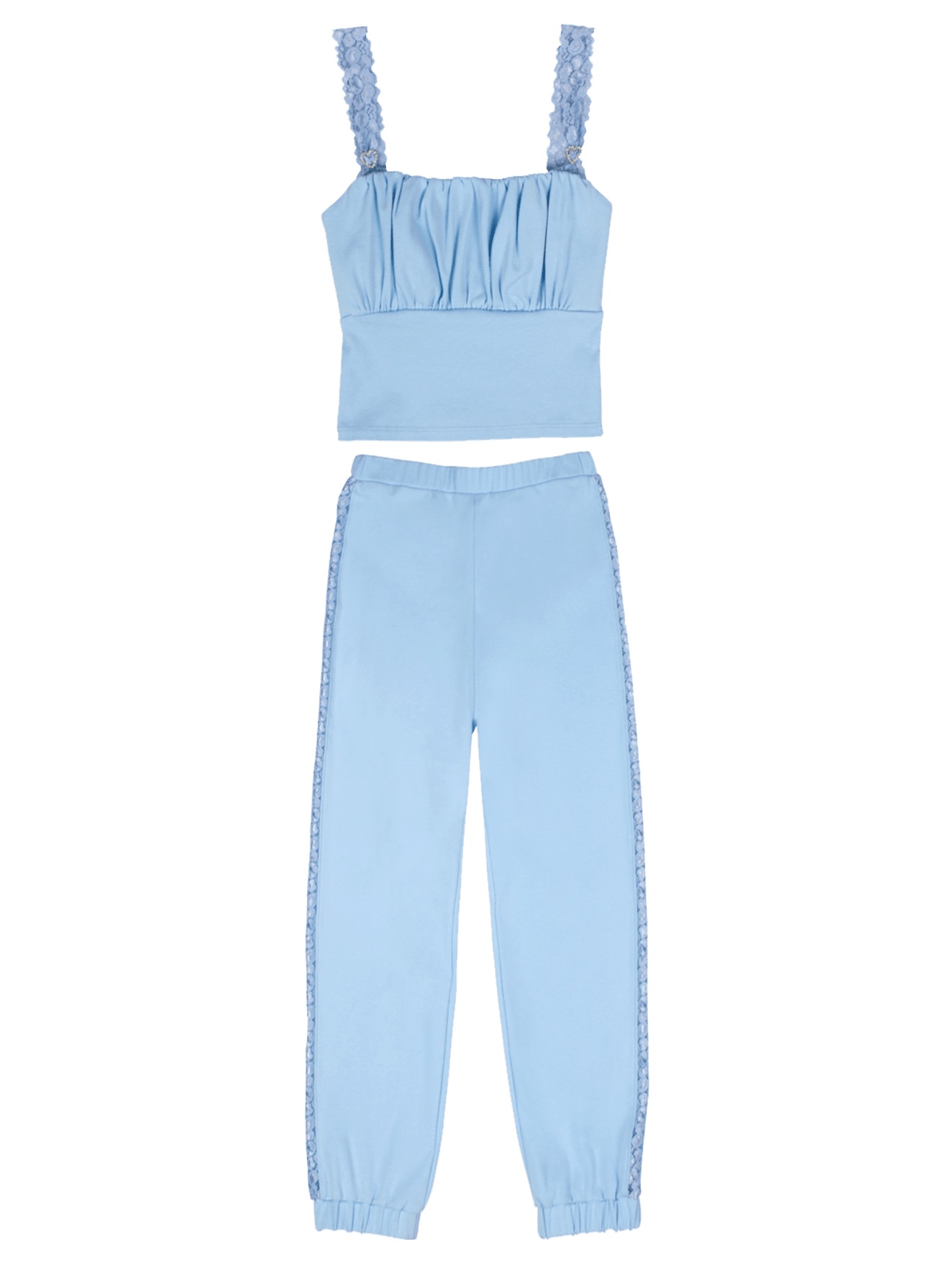
What is one small tip for being Earth-friendlier in your everyday life?
"Take plastics out of your kitchen. From plastic utensils, bottles, plates, bags, and straws, there are many reusable and recyclable alternatives made out of glass, bamboo, paper, and textiles that can be easily found online or in stores everywhere. Also, support sustainable brands :)." — Schlussel
Baserange
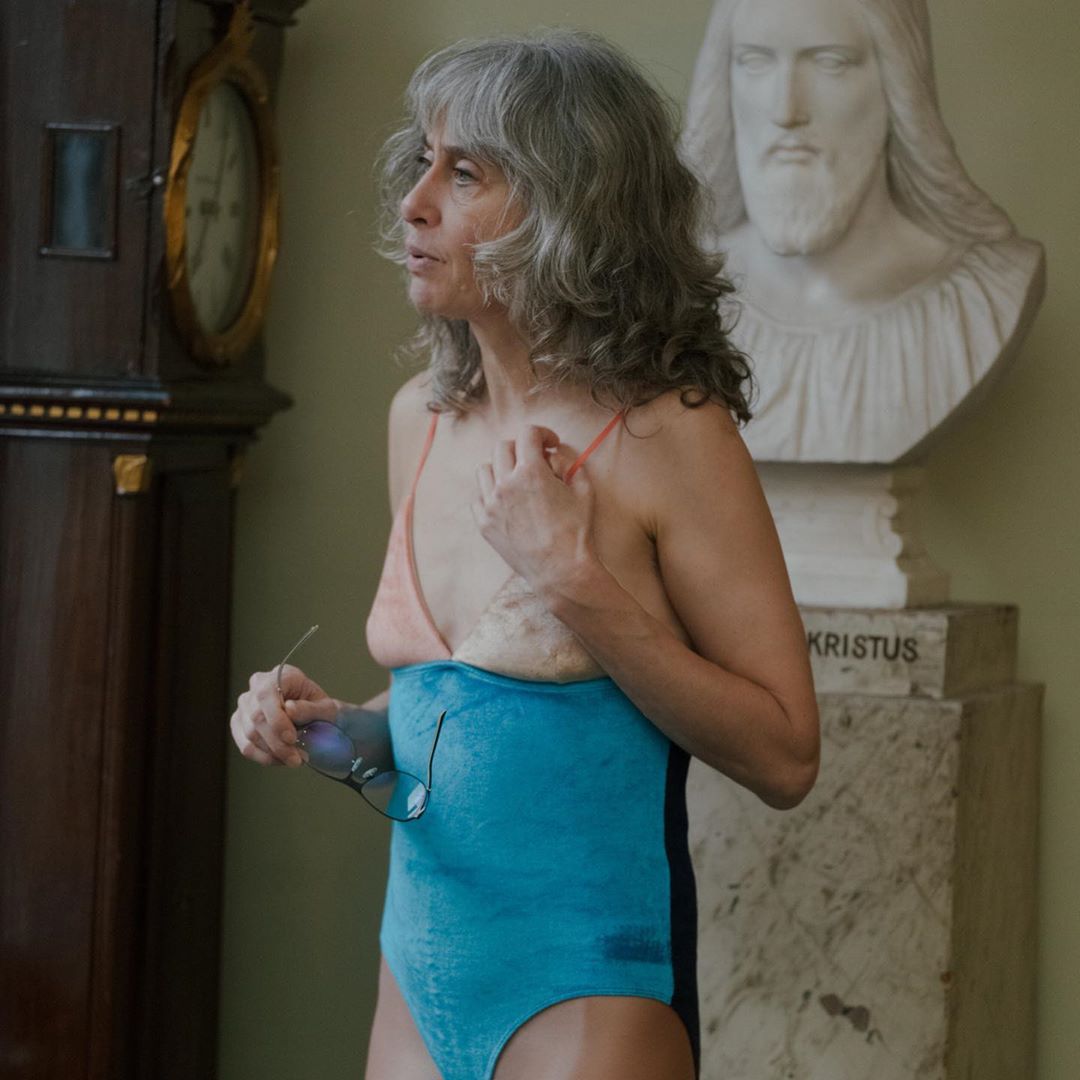
How is Baserange Earth-conscious?
"We use only natural fibers such as organic cotton, bamboo wool, or linen. If we have to use synthetic, then we choose recycled PA or PE. All our dyes are Oeko-Tex-certified. Our underwear and T-shirt packaging is made in paper, so 95% of our products are biodegradable. We produce our garments in Europe, close to our warehouse, with family-run small factories, and we ship to our clients with DHL Go Green solution to compensate for CO2-related to transport." — Blandine de Verdelhan and Marie-Louise Mogensen, co-founders and creative directors of Baserange
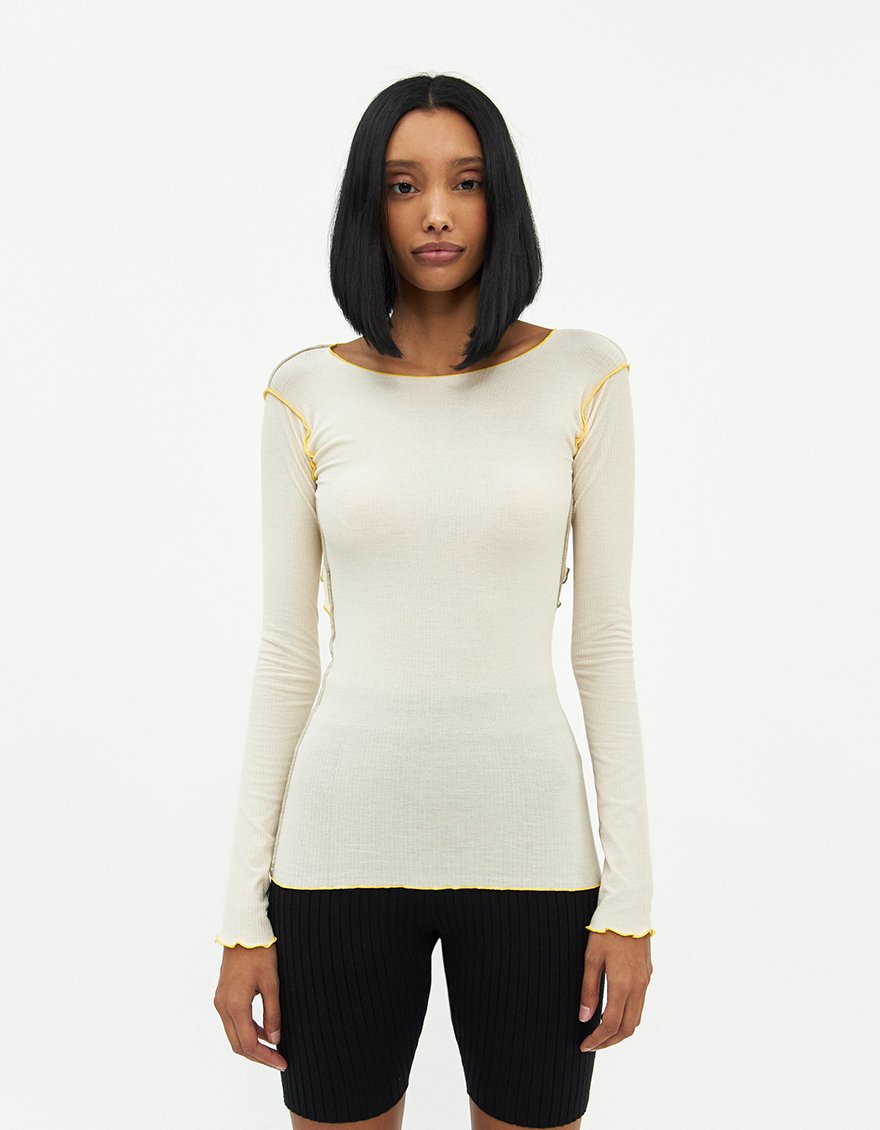
What is one small tip for being Earth-friendlier in your everyday life?
"One of my main eco-focuses in my everyday life is energy-saving—to heat or refresh my home and office reasonably. During the winter, I prefer to wear good quality sweaters in wool, alpaca, or cashmere to be comfy and have my home at 19º to 20°C max and no heat in my sleeping room." — de Verdelhan and Mogensen
Aya Muse

How is Aya Muse Earth-conscious?
"We constantly thrive to better ourselves as a company and try to continuously find ways to improve our sustainability. Some of the things that we are doing currently is eliminating all single-use plastic in both our factories and our packaging as well as our offices! We also use sustainable recycled fabrics or recycled yarn for our knits. Another main thing for us is making sure all our factories have ethical production structures and fair labor. In addition, we keep ourselves up to date as the fashion world is constantly changing and there are always more and more ways to be sustainable." — Tina Rodiou, co-founder of Aya Muse
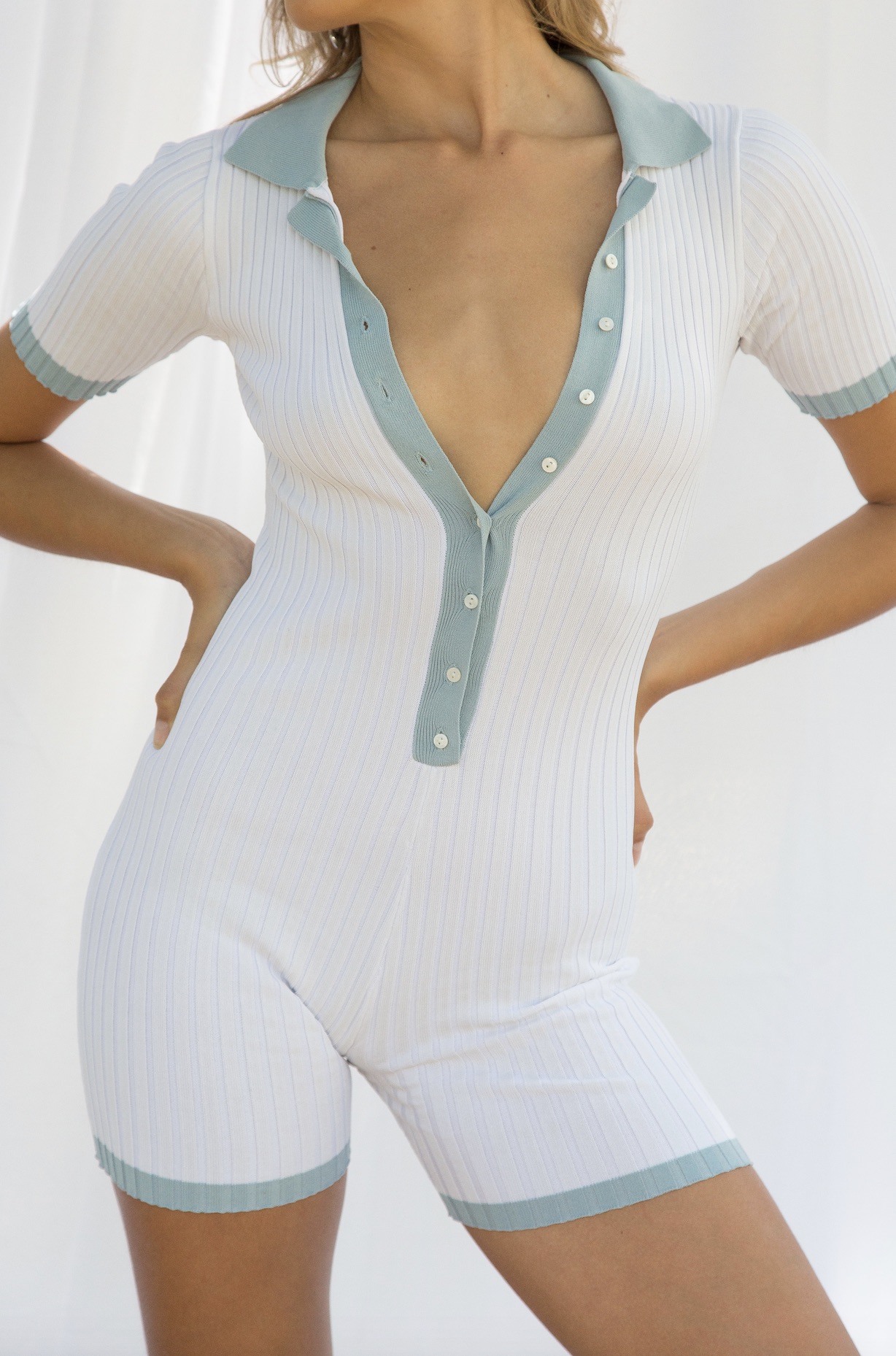
What is one small tip for being Earth-friendlier in your everyday life?
"The main thing for us is trying to implement simple things that are very easy to get accustomed to in our everyday life that can go a long way and make a huge change. For example, elimination of single-use plastic in our home, fewer animal products, recycling, compost waste, and driving an electric car." — Rodiou
Wol Hide
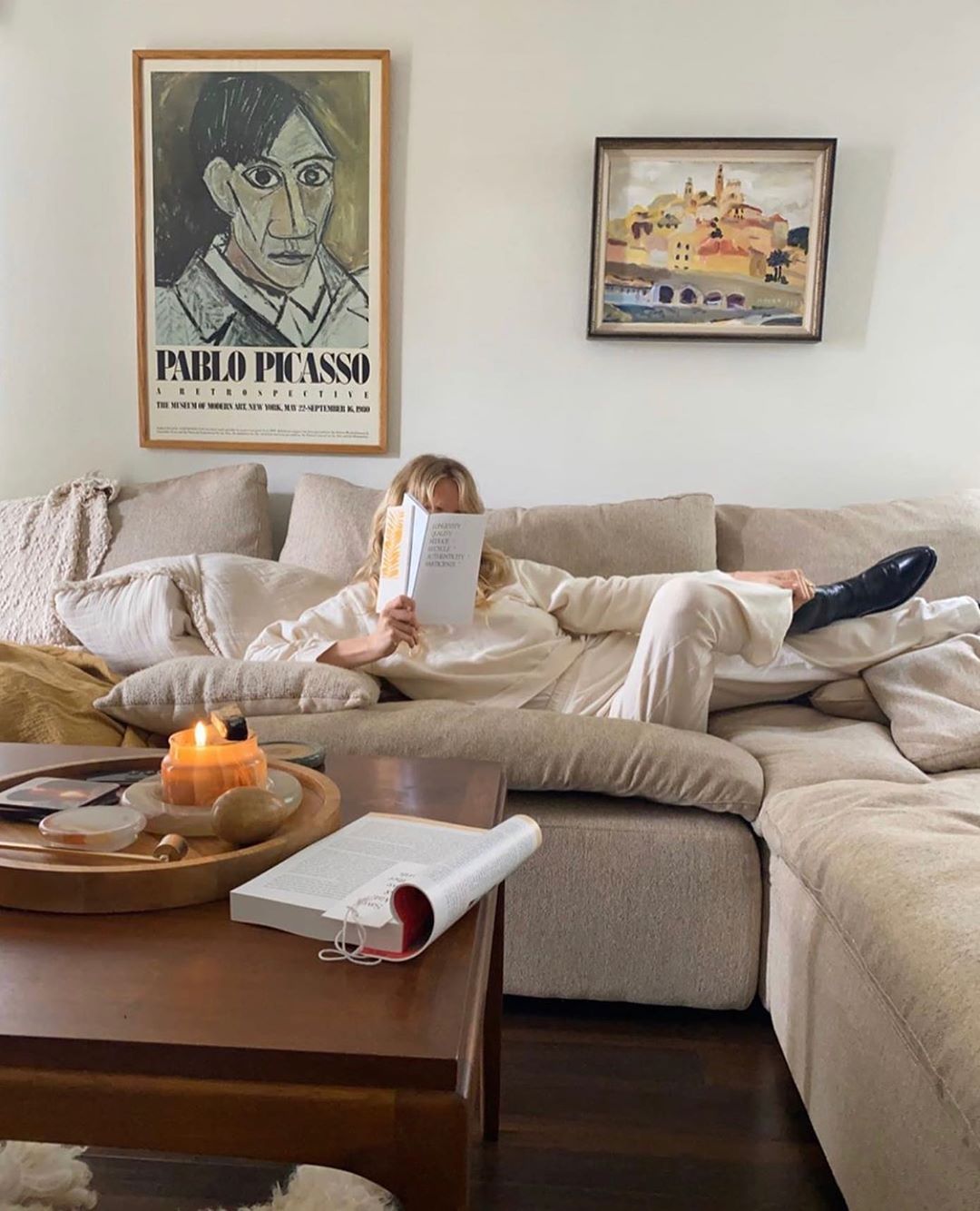
How is Wol Hide Earth-conscious?
"I design with a holistic approach. I don't use materials just for their sustainable qualities but also think about the person wearing the fibers. I want them to be soft, clean clothes that aren't harming you or the planet. I also look at all aspects of the supply chain and the effect each element has on the planet and the workers involved and take all of these aspects into consideration. I think the most important part of fostering conscious consumption is to create pieces that will last. This makes the quality and integrity of each garment extremely important to me." — Leah D'Ambrosio, founder/designer of Wol Hide
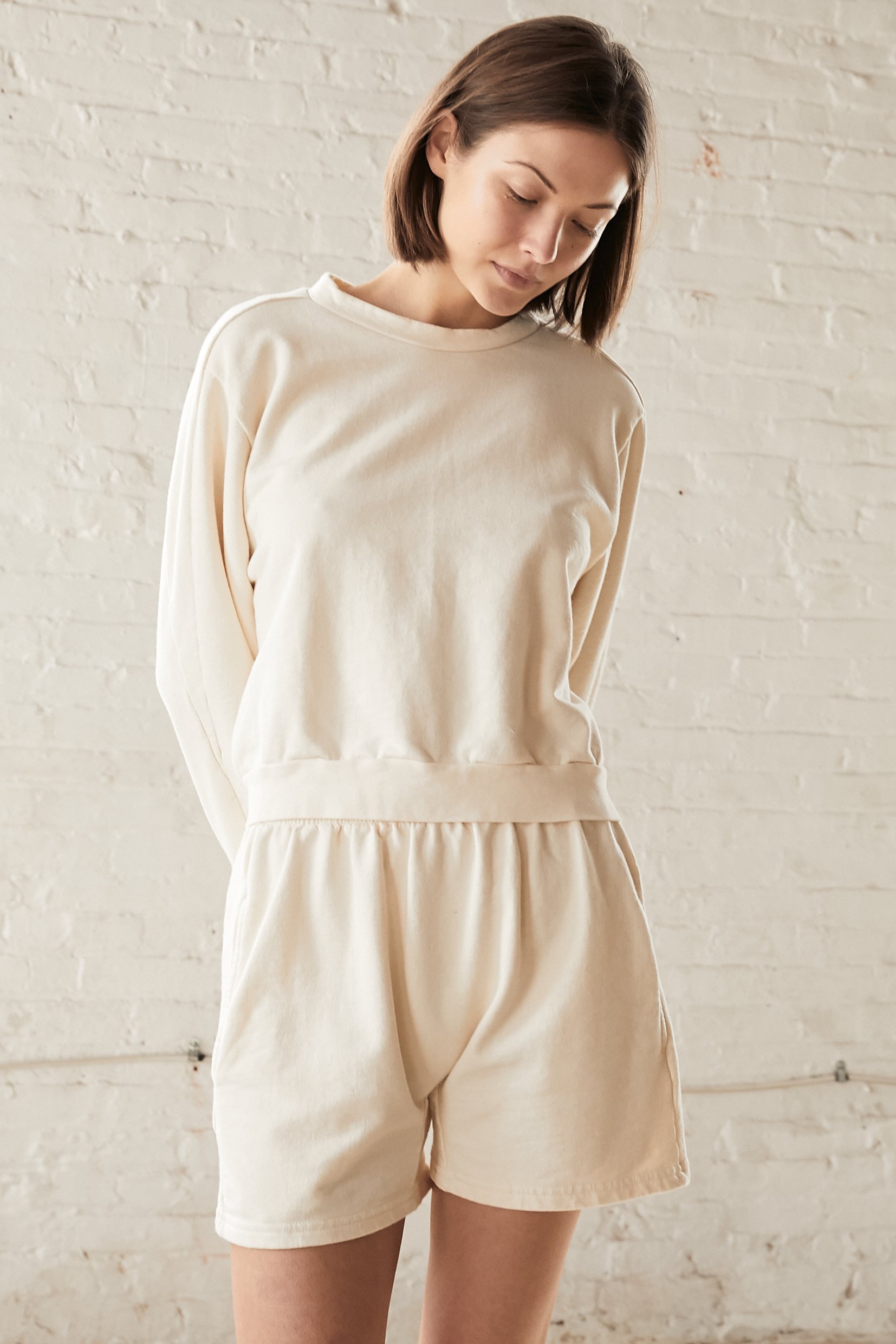
Shop the matching Easy Shorts ($100).
"This season, we have several styles using waste yarns, all hand-loomed by artisan coops in Peru. We've been able to team up with our partners there to find cotton yarns that were leftover from large-scale production, factory waste, and use them to make really special pieces. We also used a lot of organic color-grown cotton this season as well as in past seasons. This is heirloom cotton that's unbleached and undyed. Our easy styles are made with 100% organic and domestic cotton, the fabric processing uses sustainable alternatives to harsh chemicals. The black pieces are dyed with low-impact dyes, all of the dyeing and processing is done in a closed-loop system where wastewater is recycled and reused. The fabric knitting, processing, and piece sewing are all done domestically. We also have some special naturally dyed easy styles. These are dyed with plant dyes at a small natural dye house close to our studio in Philadelphia where they also collect and use rainwater for dyeing." — D'Ambrosio
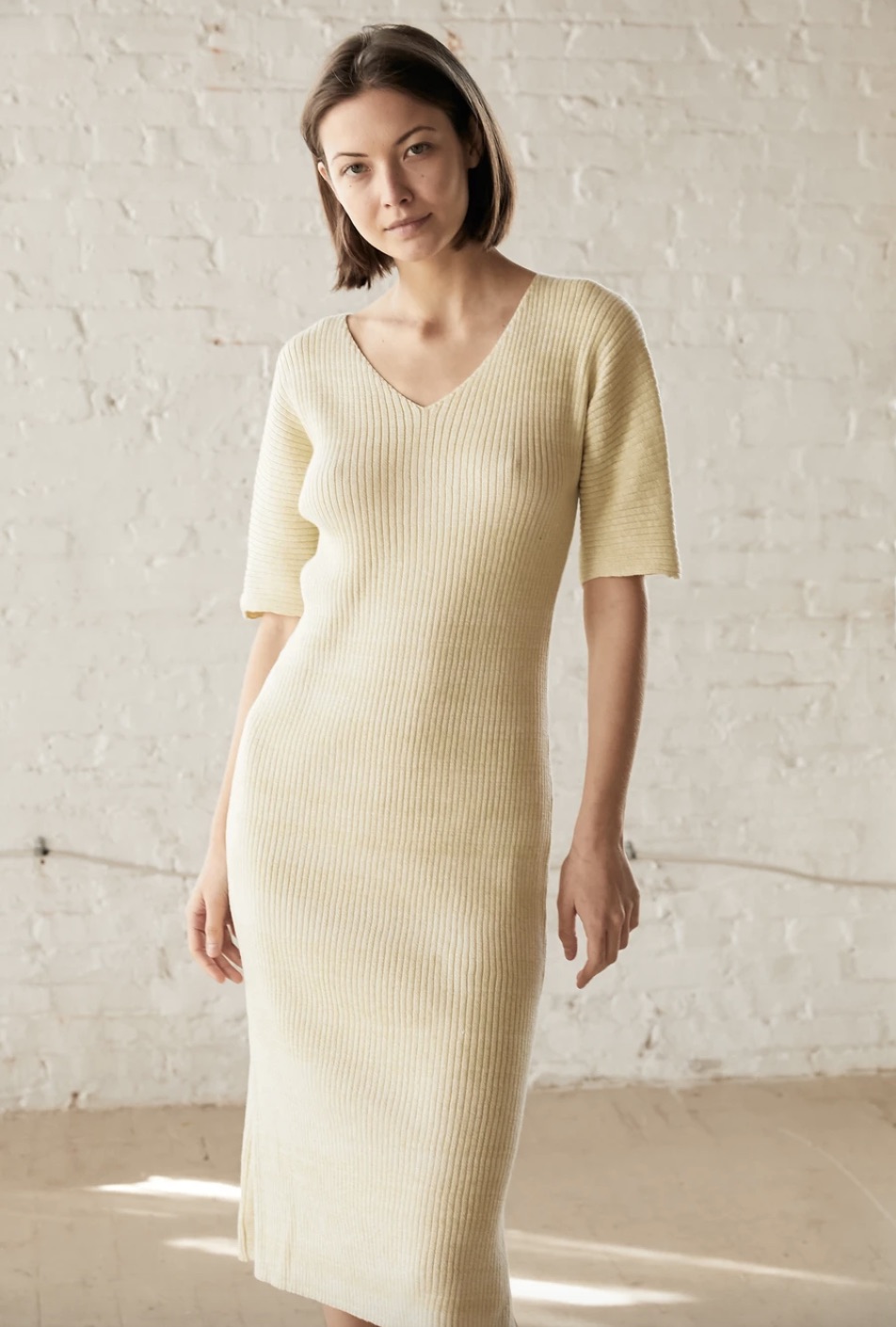
What is one small tip for being Earth-friendlier in your everyday life?
"I think the biggest little thing we can do is to make the Earth a part of our decision making. It's not easy at first because it takes a change in perspective, but once it becomes a habit, you'll see that so many purchases and small things in your everyday life can be improved. Many small changes can make a big difference. If we all start small, we will eventually think bigger and our impact will grow." — D'Ambrosio
Kordal Studio
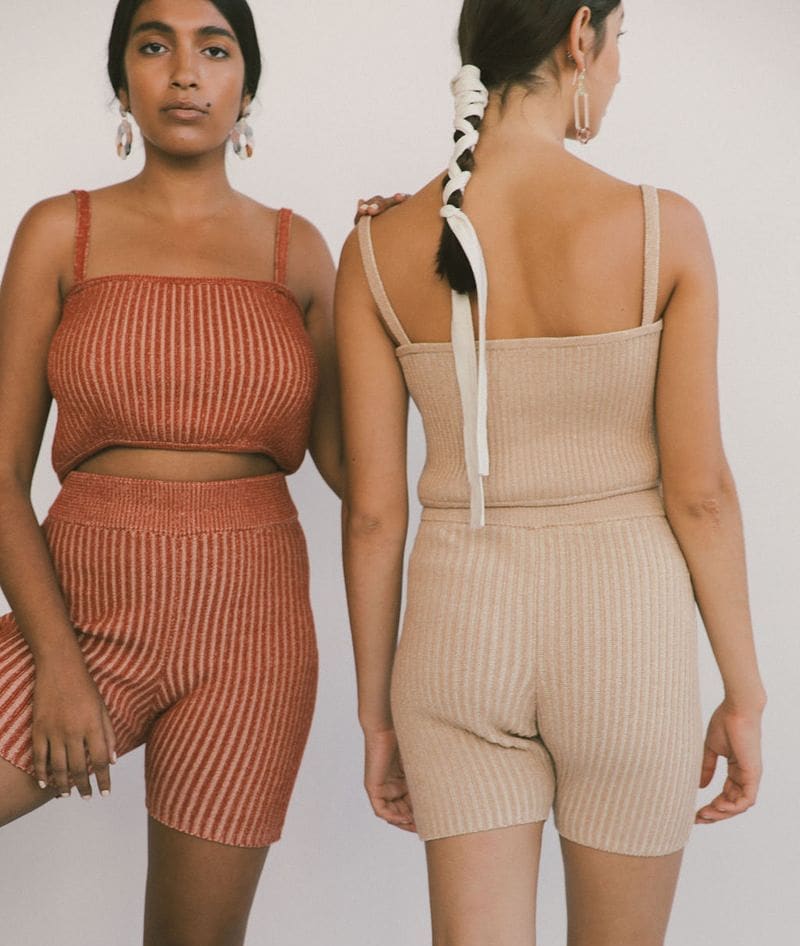
How is Kordal Earth-conscious?
"We create garments in an ethical manner by paying our workers a fair wage; designing garments that are not trend-focused; and using natural, organic, and recycled textiles. Our mission is to keep the materials and corresponding production as local as possible. By removing unnecessary shipping in the manufacturing process, we are reducing our carbon footprint, working to provide jobs in the local communities, and building long-term relationships with suppliers and artisans." — Mandy Kordal, founder of Kordal
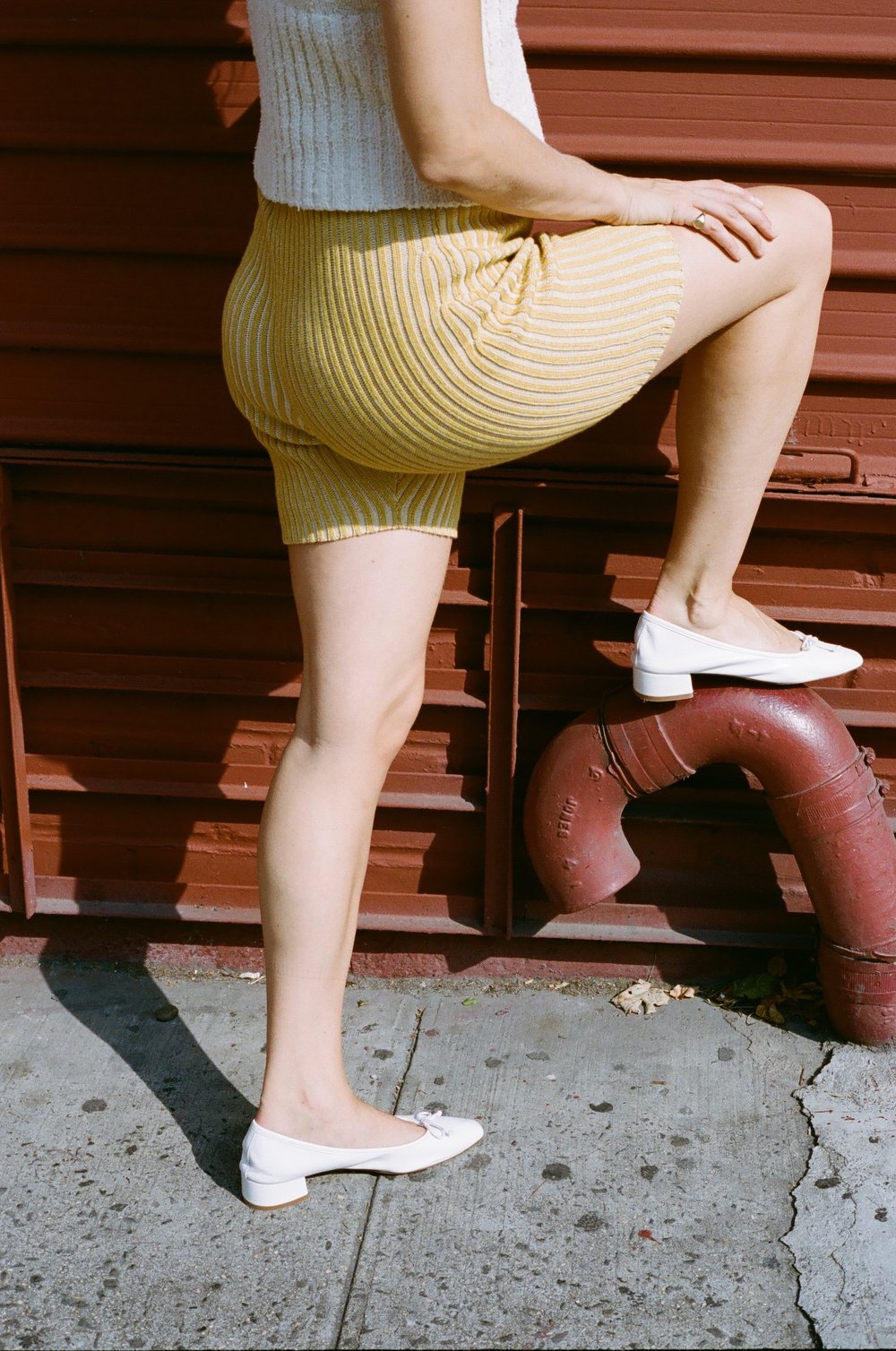
What is one small tip for being Earth-friendlier in your everyday life?
"Composting! It was incredible to see how little trash you actually throw away each week once you start to compost! It's free, easy, and one of the quickest ways to make a real impact." — Kordal
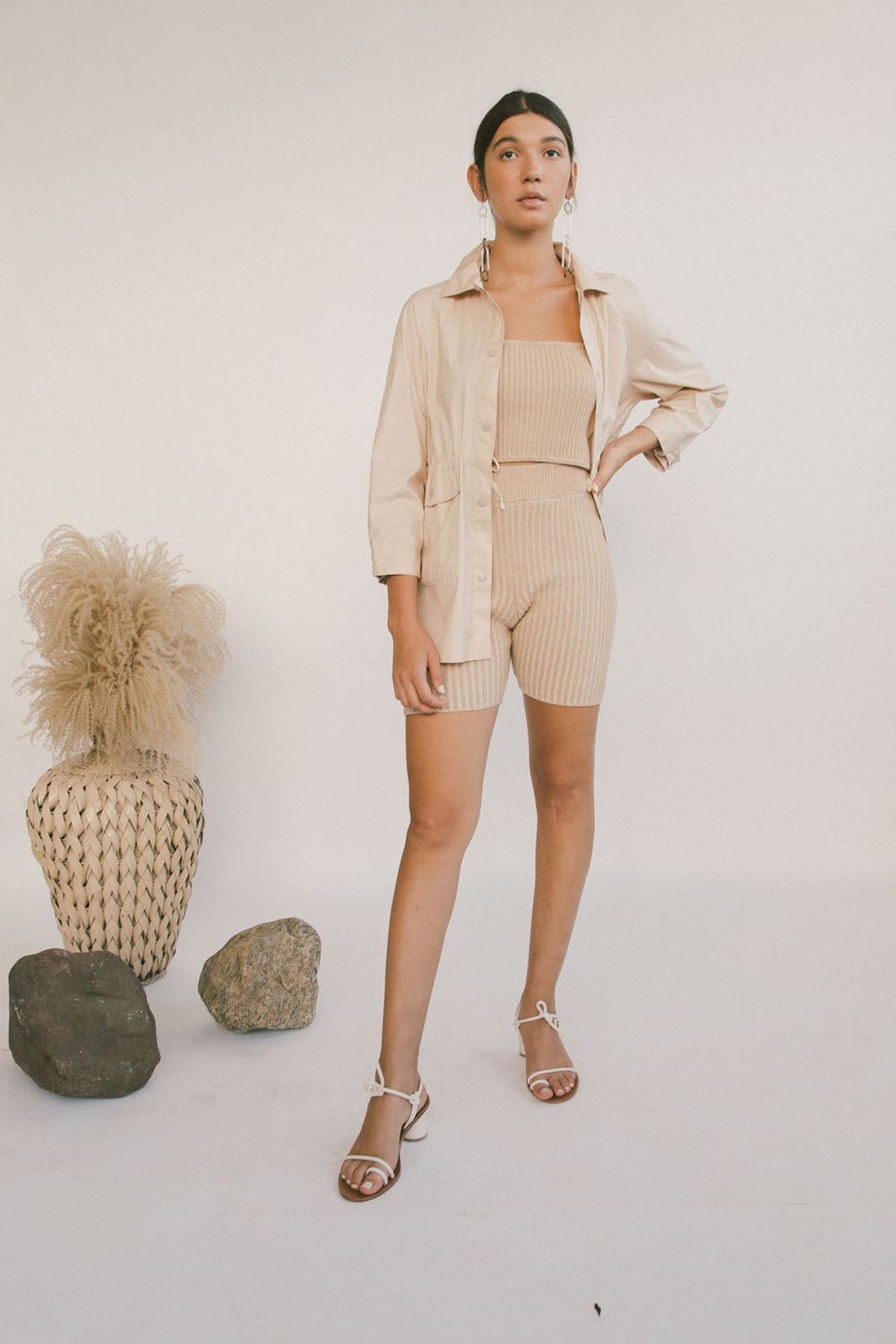
Next up, check out more sustainable fashion brands beyond the loungewear category.
Kat Collings has over 15 years of experience in the editorial fashion space, largely in digital publishing. She currently leads the vision for editorial content at WhoWhatWear.com as the site's editor in chief, having risen through the editorial ranks after joining the company in 2012. Collings is a Digiday Future Leader Awards nominee, was named Buzzfeed's best fashion Instagram accounts of the year, and is a member of the CFDA Awards Fashion Guild. Prior to Who What Wear, Collings worked on styling projects for brands such as Vogue, Teen Vogue, Lucky, and Oliver Peoples. She graduated from UCLA with a BA in communications and calls Los Angeles home.
-
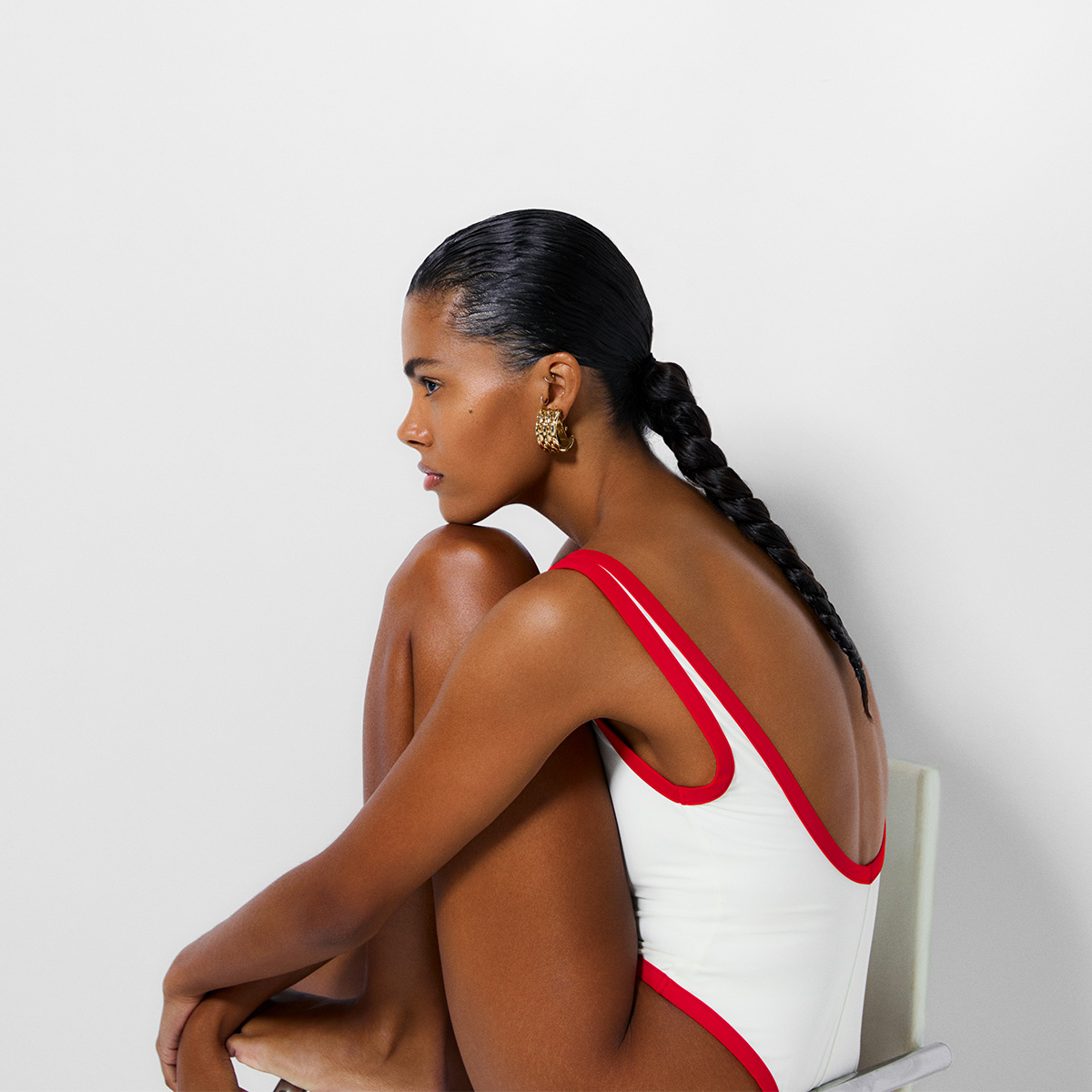 Reformation Finally Launched Swimwear, and the Collection Is Pure Elegance
Reformation Finally Launched Swimwear, and the Collection Is Pure Elegance*Orders every suit.*
By Eliza Huber
-
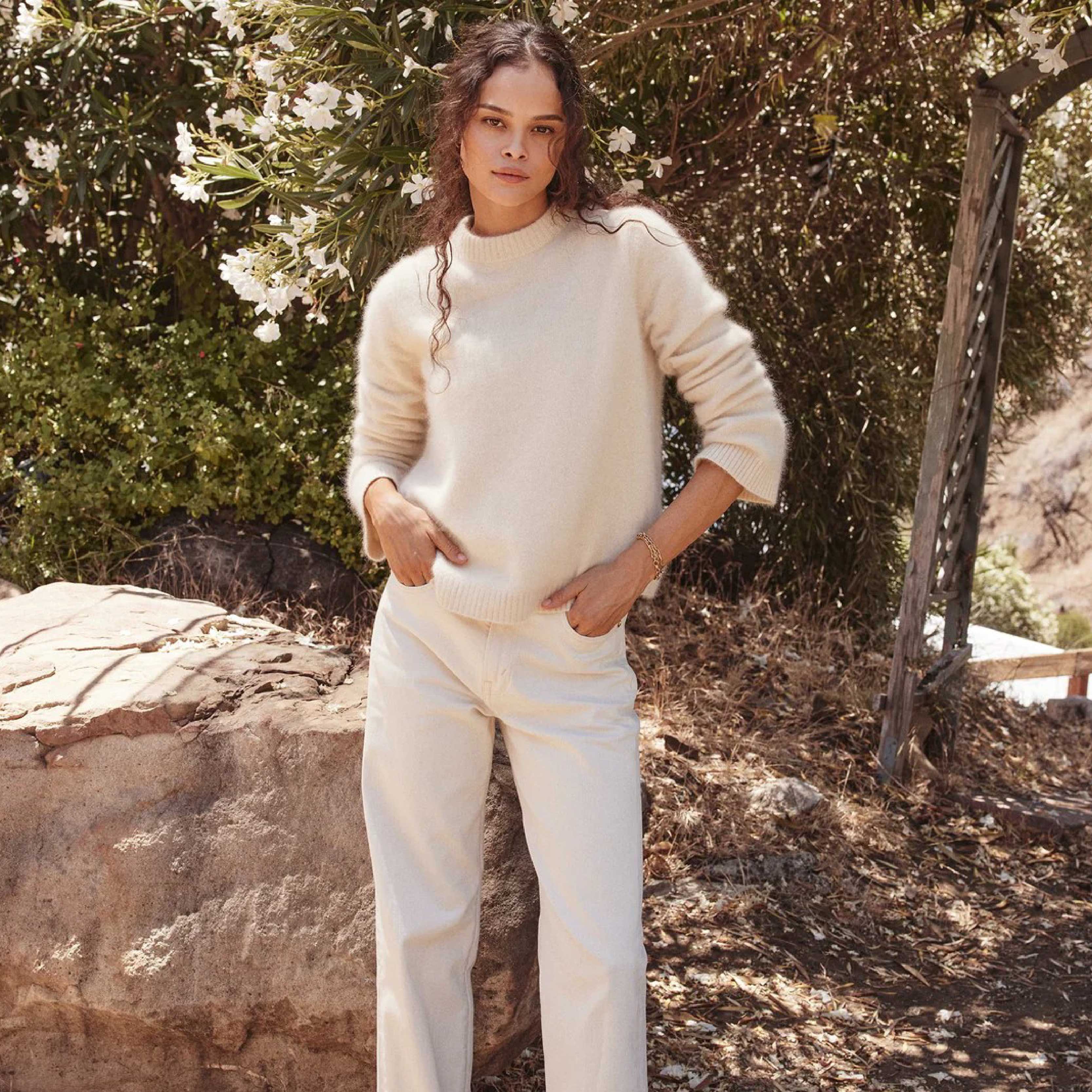 16 Classic Finds That Are Key to Building Your Perfect Capsule Wardrobe
16 Classic Finds That Are Key to Building Your Perfect Capsule WardrobeThis brand is a gem.
By Raina Mendonça
-
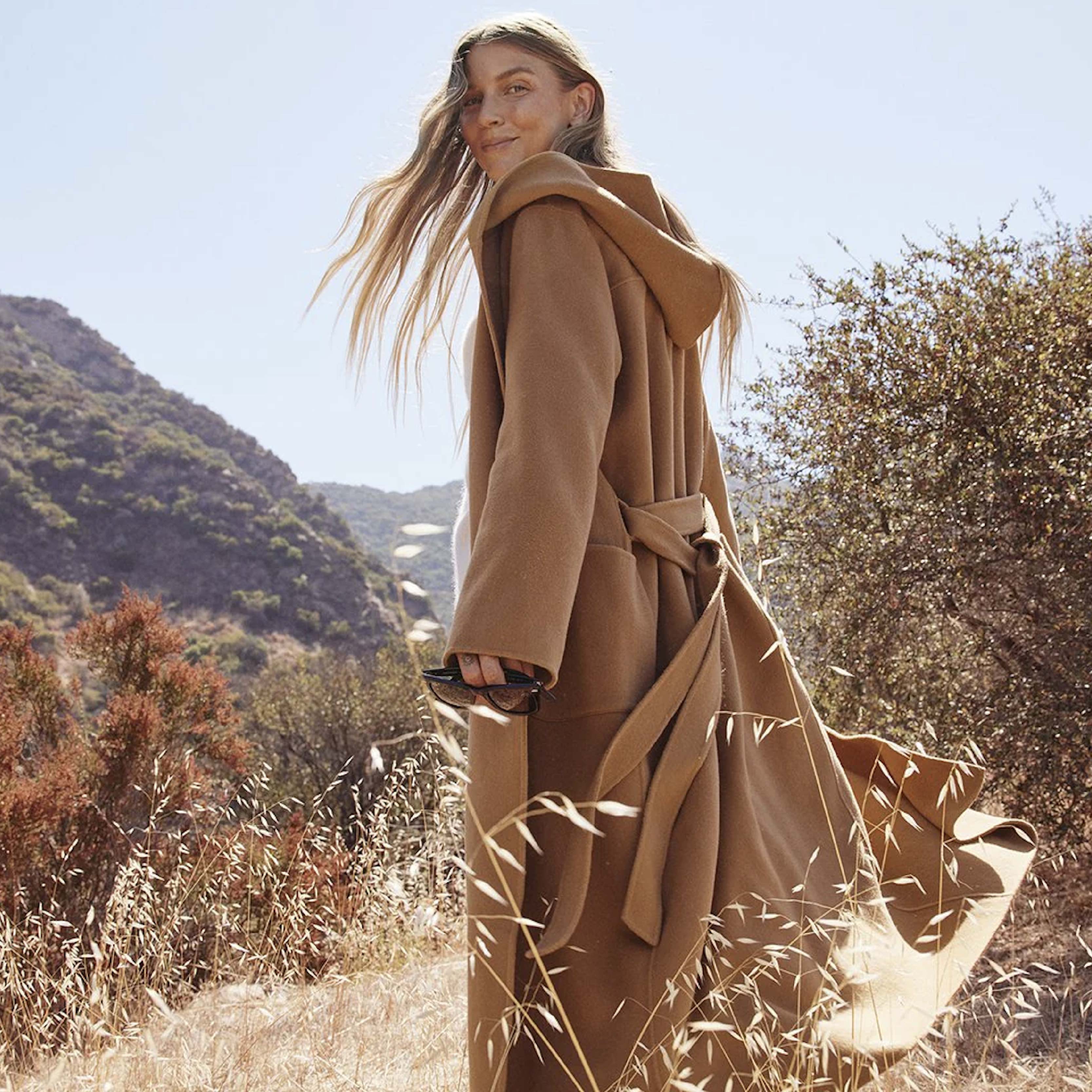 16 Classic Winter Fashion Finds That Will Stand the Test of Time
16 Classic Winter Fashion Finds That Will Stand the Test of TimeThese are winners.
By Raina Mendonça
-
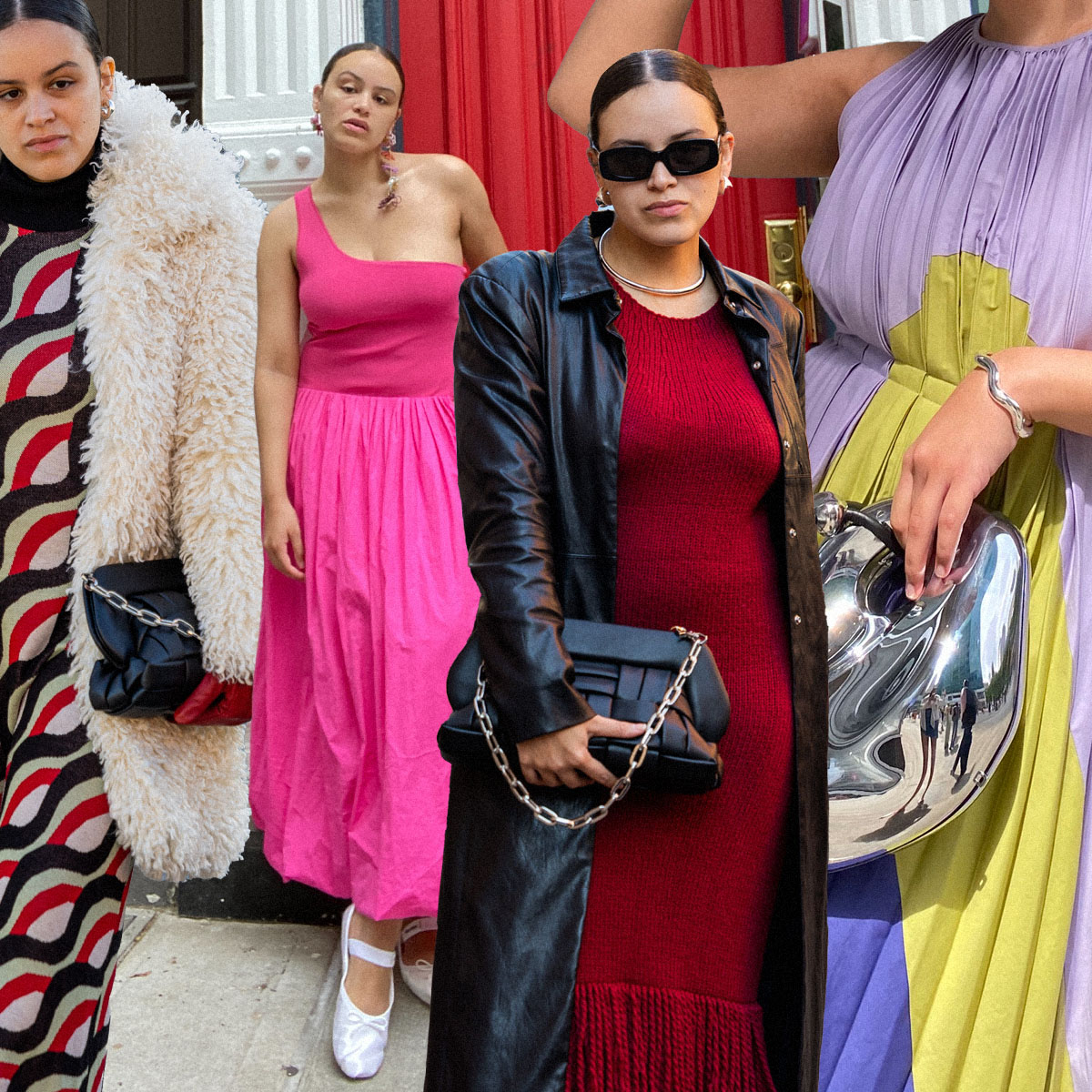 I Haven't Spent More Than $150 on Clothing in Six Months—Here's How I Did It
I Haven't Spent More Than $150 on Clothing in Six Months—Here's How I Did ItYes, really.
By Jasmine Fox-Suliaman
-
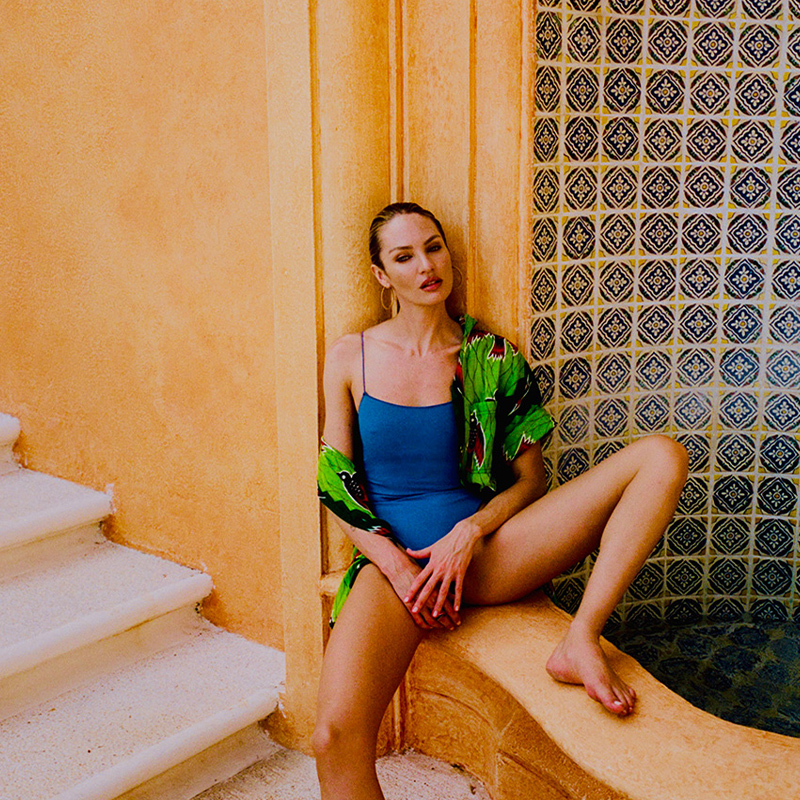 Feel and Look Good: Shop These Supermodel-Approved, Sustainable Summer Picks
Feel and Look Good: Shop These Supermodel-Approved, Sustainable Summer PicksSlow fashion is here to stay.
By Raina Mendonça
-
 Slow Fashion Is the Move for 2023—I'm Living in These 16 Dreamy Pieces
Slow Fashion Is the Move for 2023—I'm Living in These 16 Dreamy PiecesYour new favorite eco-conscious label.
By Emma Walsh
-
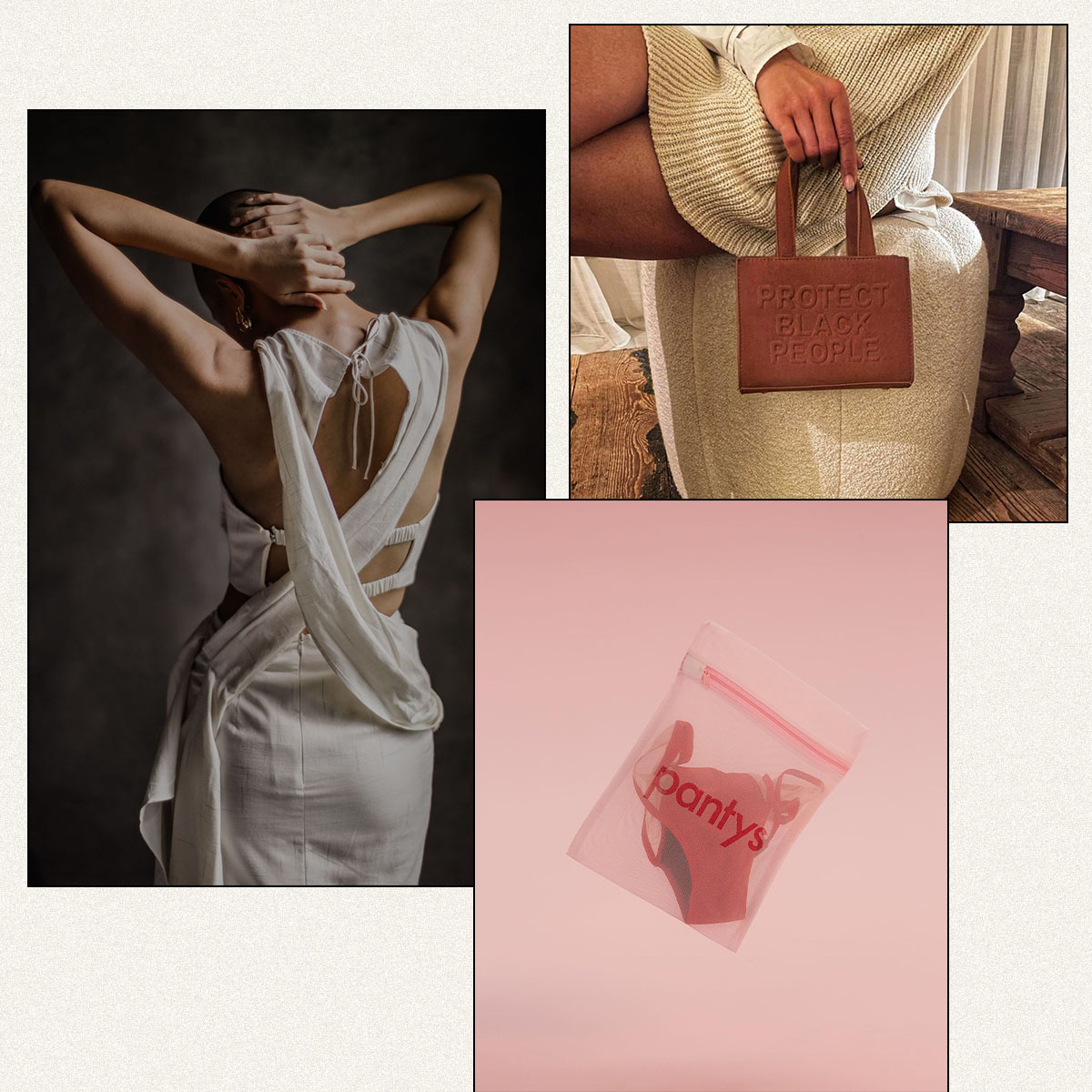 Cartier Is Empowering These Fashion Entrepreneurs Who Are Making a Difference
Cartier Is Empowering These Fashion Entrepreneurs Who Are Making a DifferenceThe 2023 Cartier Women's Initiative Awards are here!
By Kat Collings
-
 35 Sustainability-Minded Fashion Brands to Shop Year-Round
35 Sustainability-Minded Fashion Brands to Shop Year-RoundBecause it's not a trend.
By Jasmine Fox-Suliaman
